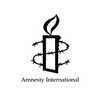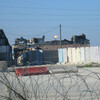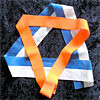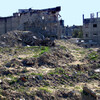
Amnesty calls for urgent measures to end settlers' impunity
18 August 2005
Four Palestinians were shot dead and two others were injured by an Israeli settler yesterday evening as they were returning home from their work at a factory in the Israeli settlement of Shilo, in the West Bank. The settler, a driver from the Israeli settlement of Shvut Rahel, was transporting Palestinians who work in a factory in the Shilo settlement to nearby Palestinian villages. He shot dead three Palestinian workers at the gate of the settlement and then went back to the industrial area, where he shot at other Palestinian workers, killing one of them and injuring two others. There are conflicting reports as to whether he took the weapon he used for the shooting attack from a security guard of the settlement or used his own. Read more about Amnesty calls for urgent measures to end settlers' impunity








